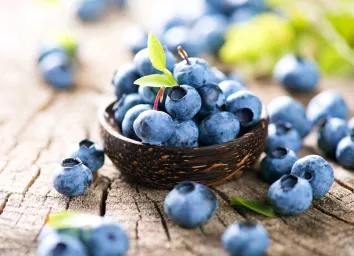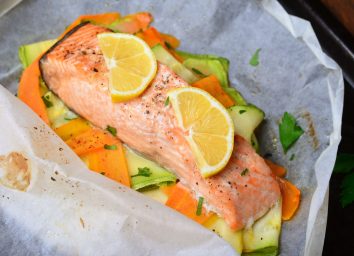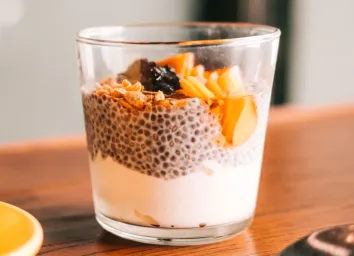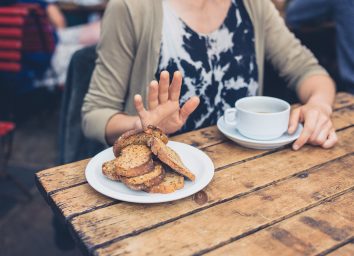Eczema Diet: The Best & Worst Foods You Should Eat
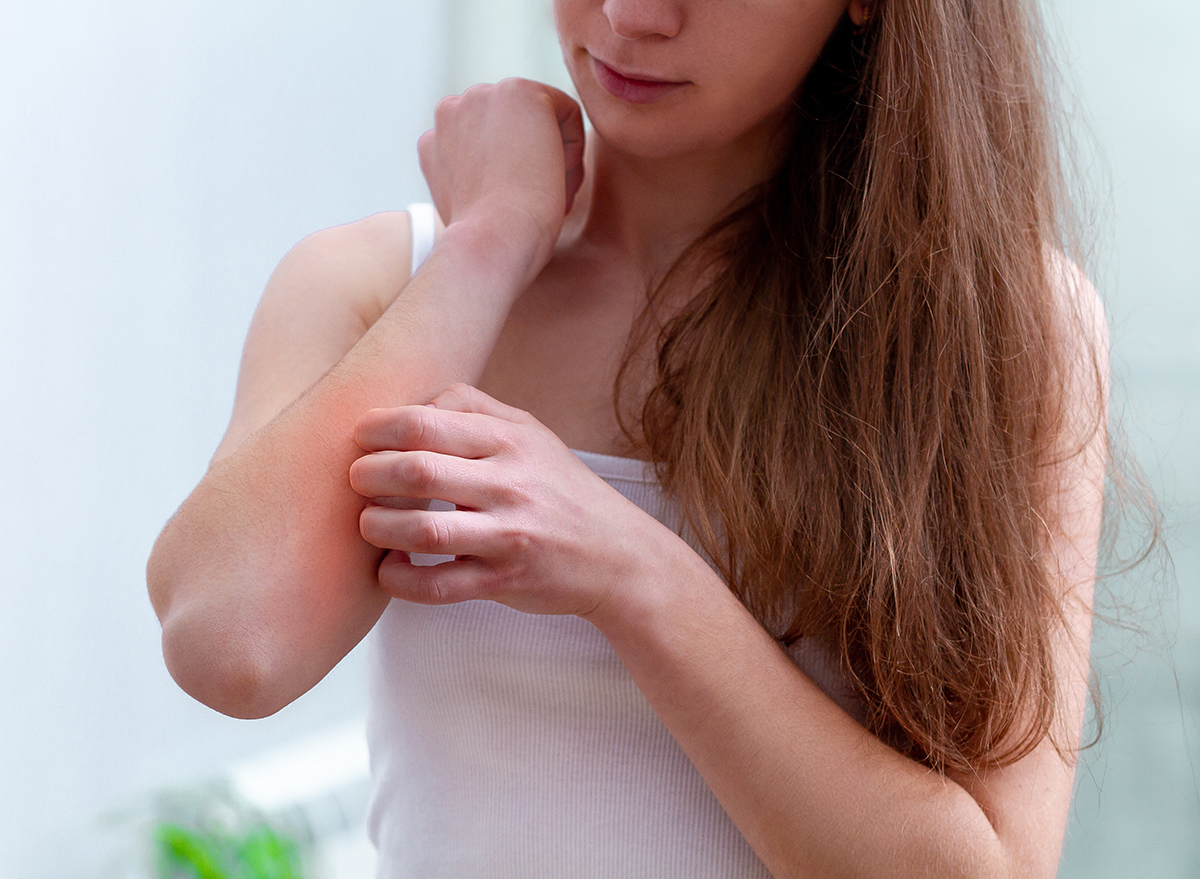
Not only is it wise to eat foods that make your gut feel good, but it’s also important to eat foods that help to keep your skin healthy, too. Choosing the right foods becomes even more important if you have a skin condition, such as eczema. About 10 percent of the U.S. population, or 31.6 million people, has some form of eczema, an umbrella term that encompasses several different conditions that cause dry, itchy, and discolored skin. To explain what eczema is and which foods help to alleviate symptoms (and those that worsen them) we consulted Kelli McGrane MS, RD for food tracking app Lose It!
Read on to learn more about how to keep eczema under control through dietary choices.
First things first: what is eczema?
“Eczema is an inflammatory skin condition that can cause skin irritation, blisters, and itchy rashes,” says McGrane.
So what is the eczema diet?
The eczema diet simply refers to the foods that one should eat to avoid bouts of inflammation.
“Certain foods can cause the body to release compounds that cause inflammation, which in turn can lead to eczema flareups,” McGrane says. “The eczema diet focuses on avoiding foods that may trigger this response and [instead] focuses more on foods that can help reduce inflammation and symptoms.”
Which foods prevent eczema from flaring up?
All of these foods have one thing in common: they work to eliminate inflammation in the body.
- Fatty Fish. Salmon, mackerel, and sardines are all excellent sources of omega-3 fatty acids, which reduce inflammation in the body.
- Fruits and vegetables high in quercetin. McGrane says quercetin is, “a type of flavonoid that’s been shown to have antioxidant and anti-inflammatory properties. Examples include apples, cherries, blueberries, broccoli, spinach, and kale.”
- Probiotic-rich foods. Probiotics are the good type of bacteria that have been shown to promote good gut health and facilitate digestion. Foods that are naturally rich in probiotics include yogurt with live (and active) cultures, kefir, and fermented foods such as miso and unpasteurized sauerkraut.
Which foods are the worst for eczema?
“The hard part about knowing which foods to avoid is that it varies by individual,” McGrane says. “For some, eggs could cause an increase in symptoms, while for others, eggs are perfectly fine, but nuts present an issue.”
Because foods that trigger eczema are respective to each individual, McGrane says it’s important to work with a dietitian to help identify which foods may trigger your flareups.
There are a few foods, though, that are more likely to cause inflammation than others.
- Foods that are high in added sugars. Sugary foods such as soda and desserts can increase inflammation, says McGrane.
- Dairy products. “Dairy is a common food allergy, and some individuals report an improvement in symptoms by going on a dairy-free diet,” she says.
- Heavily processed foods. Processed foods that include preservatives, food colorings, and excess saturated fat and added sugars can potentially cause inflammation in the body.
Can following the eczema diet eventually reverse the skin condition?
“While diet may help reduce the frequency and severity of flareups, there’s currently no evidence that diet can reverse the condition,” McGrane says.
The dietitian says that while there isn’t a set diet those who have eczema should follow, the best way to determine which foods you should steer clear of is to try an elimination diet. Of course, consulting a registered dietitian is also recommended, too.
